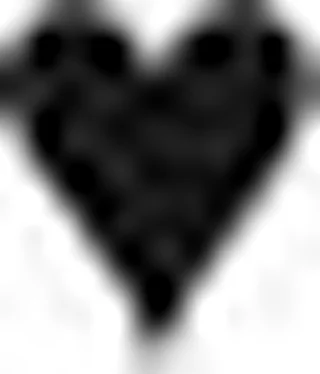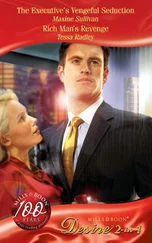Our first full day together, the sun shines along flat fields of wild corn and wheatgrasses broken and brown for the winter. They stretch like patchwork blankets toward a horizon I can see clearly. The crisp lines between gray and gold, between blue sky and white cloud, and the distant green hills layer over each other carefully, even artfully. It reminds me of Elisa’s glorious prairie.
We try the radio, but bad lyrics make Unferth cranky, and it’s half static besides. He asks me about myself for entertainment; first if I’ve got family, and second what I’ve done to keep myself fed the past few months. I tell him about my parents’ best friends, the Summerlings, devout Freyans who took me in when my parents died. Rome and Jesca and their son, Rathi. I miss them during the harvest months, when the leaves turn red and I remember the bonfires and sweet smell of horse barns where we lived briefly down in the Cherokeen kingstate. They moved up northeast to some historic settlement after I climbed the Tree, and I’ve not seen them but for Rathi last summer.
And as for my life without the Death Hall, ah, that I can paint for Unferth as a glorified adventure, filled with my own band of scraggly, wisecracking friends, militia officers as our arch-nemeses, abundant street-shine, odd jobs that led to treasure, fortresses under city bridges, helpful matrons at the Lokiskin shelters, creepers, and secrets and wonder.
He laughs and I like the spiky edges of it.
I add, “Someday they’ll tell the story that the Valkyrie of the Tree fended for herself, that I became part of the city, lived in the shadows of New Asgard, with the lowliest, with the half-dead, the nameless. They’ll say I understand roots better, I understand decay better, because I surrounded myself with it.”
He says, “And what is the truth?”
“Doesn’t that depend on who’s asking?”
“No. You know. The poet always knows.”
“The truth … I found jobs, slept where I could, and …” I hesitate, but what’s to stop me from complete honesty other than fear? “The truth is, I did learn about longing and street miracles and cold and hunger; I understood decay and hopelessness and those magical, shadowy places where life forces its way through cracks in the concrete. But I never was afraid, because I could have gone home anytime. Called one of the Valkyrie anytime. I never was hopeless or starving or alone. Every moment of it felt like living a story, not living a life.”
Unferth looks at me the longest he’s ever taken his eyes off the road, and again, and again, eyes flicking between my face and the highway, narrowing more each time as if he has to tear them away from me.
I shrug my sudden discomfort away and slump into the passenger seat. The sun is low behind us, melting the rearview mirrors orange and pushing our shadow ahead of us. I always like that, when my shadow touches a place before I do.
“Tell me a moment you did feel alive,” he finally says.
“You first,” I whisper.
He sighs as if letting go of a great weight. “The first time I faced a troll, swallowed his hot, rotten-berry breath, felt his iron claws scrape my bones hard enough to spark. Little feels as real as your own blood on your hands. Or the blood of someone you love.”
“Is that why you limp?”
“Among other things.”
I glance at him, still standing by my first assessment that he’s only five years older than me—if he’s not immortal. “I can’t think of a troll attack in the past ten years, not a bad one where people died.”
Unferth is silent. Because that was no actual question. I ask, “Where were you attacked?”
“On the ice,” he murmurs with a tiny smile.
I groan. “What ice?”
“The long-since-melted kind.”
“Unferth.”
“Your turn. A real moment for a real moment.”
The first thing that occurs to me is awful, but I spit it out. “Sitting on Rome’s—on my wish-father’s—lap when he told me my parents were dead. There was a tiny blue horse charm tied into his beard, and I stared at it and stared at it. He stroked my hair and it was like I could feel every individual strand where it connected to my scalp. I thought I might die from the pressure of it. I was so alive.” I touch my chest with my middle finger but don’t need to hold anything in. That desperation passed a long time ago.
“I remember when my father died,” Unferth says. Before I can press, he flips on the headlights and peers at the gauges on the dash. “We need more gas.”
We sleep that night inside the protection of a walled gas stop. Its tanks are refilled once a week by a convoy out of Toronto, Unferth explains.
I’ve hardly slept at all when the day begins with a muffled dawn. Clouds cap the sky, but there’s a line of violet and silver at the eastern horizon. Today we’ll reach his base at the ruins of Montreal. As we drive, Unferth murmurs under his breath. It’s Old Anglish, like his name, and I know many of the words but am not fluent enough to parse the meaning beyond that it’s a prayer.
“Teach me?” I ask, late in the morning.
He darts a glance at me; I’ve surprised him.
“I have a better idea,” he answers, and starts in with the first lines of The Song of Beowulf .
Over the long hours of the drive, he recites the entire three-thousand-line poem.
I put my feet on the dash and close my eyes. The vibration of the truck and cold, lonely wind lulls me into a space between waking and sleeping, where Unferth’s poetry evokes imagery of Heorot, the great hall of King Hrothgar Shielding, and the tragedy of its occupation by the monster Grendel for nine long years. The devastation and hopelessness of his people and retainers, the fury and desperation of his wife, Valtheow the Dark, who sacrificed and prayed to summon the power to defeat Grendel. Unferth shows me their relief when Beowulf came from over the sea to save them, and he twists his words as if drunk to voice the protestations of his namesake poet who challenged Beowulf’s worthiness before giving the berserker his own sword.
I see the torn limbs and hear the wails of grief; my heart breaks when Grendel’s mother sings a lament for her dead son. I imagine Valtheow herself as she brings a goblet of mead to Beowulf in celebration.
After lunch Unferth recites the confrontation between Beowulf Berserk and the troll mother, Grendel’s dam, who attacked Heorot in revenge. How Beowulf and Unferth and Valtheow followed her to the cave under the mere, and with Unferth’s sword Beowulf slew her. From my Unferth’s lips, the song describes their battle like a dance, like a meeting of lovers, and tears dampen my lashes when the troll mother dies. I can hardly believe he’s made me mourn the monster.
There are lines I whisper with him, my favorite passages about Valtheow or the Frisian funeral, with its meditation on the glory of battle versus the viciousness of war, but his version differs slightly from the standard. His adds words or half lines to complete the alliterations or perfect the caesuras, as if his version was written in Modern Anglish instead of translated from more ancient tongues. The eloquence of his rhythm never falters, like it’s his natural way of speaking, and I realize that this is his accent: not a lilt of regionalism or upbringing. Ned Unferth talks as if he’s always reciting poetry, even when telling me how many kilometers to Montreal or ordering me to remove my boots from the dash.
As the sun sets he dives into the final part, years after Beowulf defeated the trolls, when he goes as an old king to face the woken dragon. The rhythm of it shifts, not quite as eloquent, as if it were penned by a different poet. But my thoughts are all dragon fire and gold hoards, and though I have to pee, though my stomach reminds me it’s been hours since lunch, I wouldn’t interrupt him for even Odin’s sake.
Читать дальше












